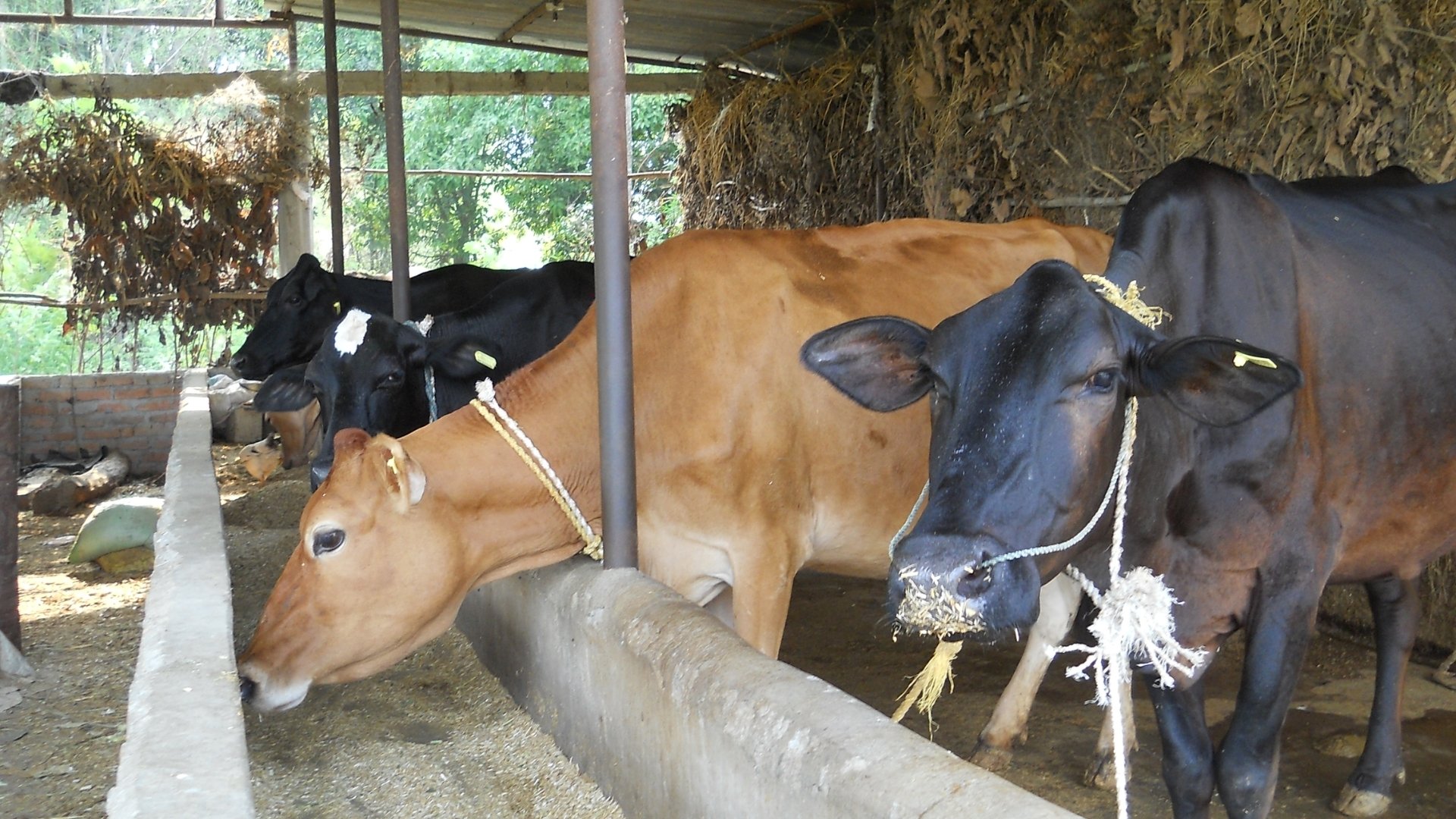Income tax is a governmental levy imposed on the earnings or profits of individuals and entities. It constitutes a direct tax obligation for individuals and businesses, determined by applying predetermined tax rates or brackets to the taxable income. This taxable income represents the remaining amount after deducting allowable deductions, exemptions, and credits. The revenue generated from income tax is utilized by the government to finance public services, infrastructure development, and diverse governmental initiatives. It is important to note that income tax rates and regulations can differ among countries and jurisdictions.
The Income Tax Act of 2002 was enacted as a comprehensive reform of the income tax system. This act modernized tax administration, streamlined procedures, and introduced new provisions to enhance compliance and reduce tax evasion. It also included provisions for tax incentives, deductions, and exemptions to encourage investment and economic growth.
Income Tax Bases
The bases for determining income tax include the following factors:
- Taxable income of an individual in a specific income year.
- Payment made with final tax withholding within the income year.
- Income received from a non-resident person’s foreign permanent establishment located in Nepal.
Classification of Income Categories
Income is classified into the following categories:
- Business income
- Employment income
- Investment income
- Windfall gain
Assessable Incomes
Assessable incomes consist of the following:
- Income earned by a resident individual from employment, business, or investment during the income year, regardless of the source of income.
- Income earned by a non-resident individual from employment, business, or investment in Nepal during the income year (excluding tax-exempt income).
Computation of Employment Income
Ever wondered about the taxable amount of your income? According to the Income Tax Act, the calculation of remuneration received by an individual from employment during any income year includes the following components:
- Amounts for wages, salaries, leave, overtime work, fees, commissions, prizes, gifts, bonuses, and other benefits.
- Payment for personal allowances, including dear allowances, subsistence allowances, entertainment, and transport allowances.
- Reimbursement or settlement of expenses incurred by the individual or their associated person for personal purposes.
- Payments made for consenting to terms of employment.
- Payments made for termination, loss of employment, or compulsory retirement.
- Retirement payments and contributions, including amounts deposited by the employer into the retirement fund.
- Other payments related to employment.
However, you don’t need to worry about some earnings as mentioned by the Act. The following remunerations an individual earns are not included in the computation:
- Amounts are deductible under Section 10 and payments subject to final tax withholding.
- Food and tiffin provided by the employer at the work site under equal terms for all employees.
- Settlement or reimbursement of expenses that fulfill the business purpose of the employer or are exempted from income computation for investment purposes.
Computation of Investment Income
In case you are an investor, you must know about the computation of income earned from investments. Which includes:
- Dividends, interest income, natural resource payments, rent, royalties, investment profits, interest from retirement funds, or retirement payments from approved funds.
- Net profits from the disposal of non-business taxable assets invested by the individual.
- Gifts received in relation to investments.
- Excess amounts received from the disposal of depreciable property.
- Retirement payments made from investments.
- Amounts received for accepting any investment restrictions.
However, the following matters are exempted from being included in the computation of profits and benefits derived from investments:
- Payments subject to tax withholding or exemptible amounts.
- Amounts to be included in computing income from employment or business.
Special Tax Exemptions
Your income might also be subject to tax exemption. The Act provides special provisions for tax exemptions, which include the following:
- Income exempted based on bilateral or multilateral treaties or agreements between the Government of Nepal and foreign countries or international organizations.
- Income received from foreign government service.
- Income received by non-Nepalese citizens in the service of the Government of Nepal under tax exemption conditions.
- All allowances and income provided by the Government of Nepal, Provincial Government, or Local level as social security.
- Gifts, inheritances, or scholarships
- Amounts received by exempted organizations for donations or gifts.
- Pensions of Nepalese citizens from military or police service in foreign countries funded by those governments.
- Amounts earned by Nepal Rastra Bank in line with its objectives.
- Income earned by water and sanitation consumer organizations registered under the Water Resources Act, 2049.
- Income earned by mutual funds approved by the Nepal Securities Board.
- Income earned by educational institutes with a memorandum of understanding with the Government of Nepal, explicitly stating non-profit or non-distribution of profit objectives
This Act provides incentives and favorable conditions for the agricultural sector. It establishes that no tax shall be imposed on income generated from agricultural activities when the business is registered as a firm, company, partnership, or corporate body. Additionally, registered firms, companies, partnerships, or corporate bodies engaged in agriculture enjoy a fifty percent tax exemption on their earnings. MSMEs are likely to get benefitted from this provision.
The Act also extends tax exemptions, especially to the person engaged in MSMEs by enacting distinct and unique provisions. These provisions aim to stimulate the growth and development of the agricultural sector, cooperative organizations, micro-financial institutions, and special industries by providing tax incentives and exemptions. By promoting these sectors, the Act contributes to the overall economic advancement and prosperity of the nation.
A run-through to the exemption guaranteed for the person engaged in MSMEs, MSMEs, and other innovative industries;
|
Exemption on the tax levied on the income earned by any person from a special industry and information technology industry
|
|
| If a person gives direct employment to a hundred or more Nepali citizens | 90% of the rate of tax leviable on the income of that year |
| If a person gives direct employment to three hundred or more Nepali citizens | 80% of the rate of tax leviable on the income of that year |
| If a person gives direct employment to five hundred or more Nepali citizens | 75% of the rate of tax leviable on the income of that year |
| If a person gives direct employment to thousand or more Nepali citizens | 70% of the rate of tax leviable on the income of that year |
| 10% exemption shall be provided if the person gives direct employment to 100 or more Nepali citizens including 33% from among women, Dalits or persons with disability. | |
|
Tax exemption of special industry according to its location
|
|
| Special industry operated in remote areas | 10% of the tax leviable on the income of the years for up to 10 years from the establishment or first transaction |
| Special industries operated in undeveloped areas | 20% of the tax leviable on the income of the years for up to 10 years from the establishment or first transaction |
| Special industry operated in the least developed areas | 30% of the tax leviable on the income of the years for up to 10 years from the establishment or first transaction |
| 100% exemption for a period of 15 years from the date of commencement of its transaction to the special industry established in the Karnali Province providing direct employment to more than 100 of Nepali citizens | |
|
Tax exemption according to Capital investment
|
|
| Industry with an investment of more than Nrs. 1,000 million which provides direct employment to more than 500 (such special industries and tourism industry except for casino) | 100% exemption for five years from the date of starting its transaction and 50% for 3 years afterward |
|
Income Tax Exemption to the industry in special economic zone
|
|
| Established in mountains district and hilly district | 100% exemptions for 10 years of its establishment and 50% afterward |
| Established in other special economic zones declared by Government of Nepal | 100% exemptions for 5 years of its establishment and 50% afterwards |
| Tax exemptions on the dividends distributed by such industries | 100% for 5 years of its establishment and 50% for 3 years afterwards |
| Income by foreign investors from foreign technology or management service charge or royalty in the industry established in special economic zones | 50% in such income tax |
|
Tax exemption on income earned from export
|
|
| If the tax is chargeable at the rate of 20% on an income of an individual resident | 25% of that tax |
| If the tax is chargeable at the rate of 25% on an income of an individual resident | 50% of that tax |
| 20% of tax leviable on the income of an entity | |
| Additionally, 35% of tax on income earned from export of goods produced by a production-based industry | |
|
Exemption according to distinct condition
|
|
| Conditions | Exemption on the Income tax |
| Industry related to software development, data processing, cyber safe, and digital mapping established in the operation of the zoological, geological, biotech related park, technological park specified by the Government | 50% |
| Production based, tourism service, hydropower generation, distribution and transmission entities | 15% |
| Industry established in remote and undeveloped area producing brandy, cider and wine based on fruits respectively | 40% and 20% exemption for 10 years respectively |
| To a person receiving royalty income from exportation of intellectual property | 25% |
| Person receiving income from the sale through transfer of intellectual property | 50% |
| Private company having the paid-up capital of Nrs. 500 million or more if converts into a public company | 10% exemption for 3 years |
| On the income earned from sale of its products of a domestic tea producing and processing industry, dairy industry (milk products) or textile industry | 50% |
| Health institution operated by a community institution | 20% |
| Micro-enterprise for 7 years (If operated by a woman entrepreneur addition 3 years) | 100% |
| Income earned by selling raw material or associated raw material produced domestically | 20% |
| Start-up business using new changing knowledge, thought, skill having annual transaction of up to one crore | 100% for first five years of commencement of its transaction |
| Special industry operated in Kathmandu valley translocated outside the valley and operated thereto | 100% for 3 years of such translocation and 50% for 2 years afterwards |
| Industry producing new goods from the raw materials of used goods having direct impact on environment | 50% for first 3 years of commencement of its transaction and 25% for 2 years afterwards |
| Industry producing immunization vaccine, oxygen gas and sanitary pad | 100% and 50% for 2 years afterwards |
|
Exemption to the industry related to tourism or the airlines company operating international flight
|
|
| Capital investment of more than Nrs. 1,000 million | 100% exemption for 5 years and 50% for 3 years afterwards |
| Capital investment of more than Nrs. 3,000 million | 100% exemption for 10 years and 50% for 5 years afterwards |
| Capital investment of more than Nrs. 5,000 million | 100% exemption for 15 years |
The Act grants certain privileges and provisions that allow your industry to maintain confidentiality regarding the source of income for investments made in national infrastructure development projects, such as hydropower projects, international airports, subways, roads, railways, or manufacturing industries. However, this exemption applies only if your industry employs over 300 domestic workers and utilizes more than 50% domestic raw materials until mid-April 2024 (2080 Chaitra), with the exception of industries involved in the production of cigarettes, bidis, cigars, chewing tobacco, khaini, gutkha, pan masala, liquor, and beer.
Interestingly, the Act includes a special privilege for married couples (Section 50). A resident individual and their spouse can submit a written notice to be treated as a single entity for tax purposes in a specific income year. In such cases, they will be jointly and severally responsible for the tax payable during that respective year.
Every individual has the responsibility to fulfill their obligations as outlined in this Act. However, while carrying out these duties, individuals are also entitled to the following rights:
- The right to be treated with dignity and respect.
- The right to receive information concerning tax matters in accordance with the prevailing laws.
- The right to present evidence in defense of tax-related matters.
- The right to engage a legal practitioner or auditor for defense purposes.
- The right to maintain the confidentiality of tax-related matters, except as specified in the Act.
All taxpayers are assigned a unique identification number called the Permanent Account Number (PAN). This number is issued by the Department for the purpose of identifying individuals. The PAN is used in income returns, statements, and other documents to ensure consistency and uniformity. In the case of an unintentional registration error.
These provisions aim to uphold the rights of individuals and ensure fairness, transparency, and accountability in tax-related matters. By providing a PAN and outlining its suspension criteria, the Act facilitates efficient tax administration and enforcement.
All taxpayers with an assessable income have to pay tax in three installments as follow;
| Date on which payment is to be made | Amount to be paid of the estimated tax amount |
| By the end of Poush (mid-January) | From 40% |
| By the end of Chaitra (mid-April) | From 70% |
| By the end of Ashad (mid-July) | From 100% |
Every individual is obligated to submit their income return for a specific year within three months after the conclusion of the income year. However, if circumstances necessitate additional time, an individual may submit a written application to the Department requesting an extension of the submission deadline. The Department has the authority to grant an extension of up to three months for submitting the income return if it deems the reason for the application to be valid.
Failure to comply with the provisions outlined in the Act regarding the timely submission of income returns will result in a penalty ranging from Nrs. 5,000 to 25,000 being imposed on the non-compliant individual. However, if any person submits a false or misleading statement they shall be charged;
| False or misleading statement not knowingly or recklessly but by mistakenly | 50% of the amount less resulted therefrom |
| Knowingly or recklessly | 100% of the amount less resulted therefrom |
| Accomplice who knowingly or recklessly aids or abets or advises | 100% of the tax less paid by an accomplice |
Offense and Punishment
| Who does not pay tax | Nrs. 5,000 to 30,000 or with imprisonment for 1 to 3 months or both |
| Who submits false or misleading statement | Nrs. 40,000 to 1,60,000 or with imprisonment for 6 months to 2 years or both |
| Who obstructs or unduly influences tax administration | Nrs. 5,000 to 20,000 or with imprisonment for 1 to 3 months or both |
| Punishment to accomplice | Half a punishment imposed on the offender |
| Who does not observe the Act | Nrs. 5,000 to 30,000 |
Rates of Tax levied on the taxable income of any resident individual;
| Taxable income | Rates |
| Upto 400,000 | 1% |
| More than 400,000 less than 500,000 | Nrs. 4,000 up to 400,000 + 10% on the income for more than 400,000 |
| More than 500,000 less than 700,000 | Nrs. 14,000 up to 500,000 + 20% on the income more than 500,000 |
| More than 700,000 less than 2,000,000 | Nrs. 54,000 up to 700,000 + 30% on the income more than 700,000 |
| More than 2,000,000 | Additional 20% tax to the rate of tax of (700,000 to 2,000,000) |
Distinct rate on the taxable income of any couple making a choice according to Section 50 (special privilege for married couple) of the Act;
| Taxable income | Rates |
| Up to 450,000 | 1% |
| More than 450,000 less than 550,000 | Nrs. 4,500 up to 450,000 + 10% on the income for more than 450,000 |
| More than 550,000 less than 750,000 | Nrs. 14,000 up to 550,000 + 20% on the income more than 550,000 |
| More than 750,000 less than 2,000,000 | Nrs. 54,000 up to 700,000 + 30% on the income more than 750,000 |
| More than 2,000,000 | Additional 20% tax to the rate of tax of (750,000 to 2,000,000) |
Other provisions regarding tax rates and deduction;
| Individuals | Rates and deduction |
| Individual working in remote area | Tax deduction up to 50,000 allowances |
| Employee working in a diplomatic mission of Nepal | 75% amount of the foreign allowance shall be deducted |
| Non-resident individual | 25% levied on the taxable income |














